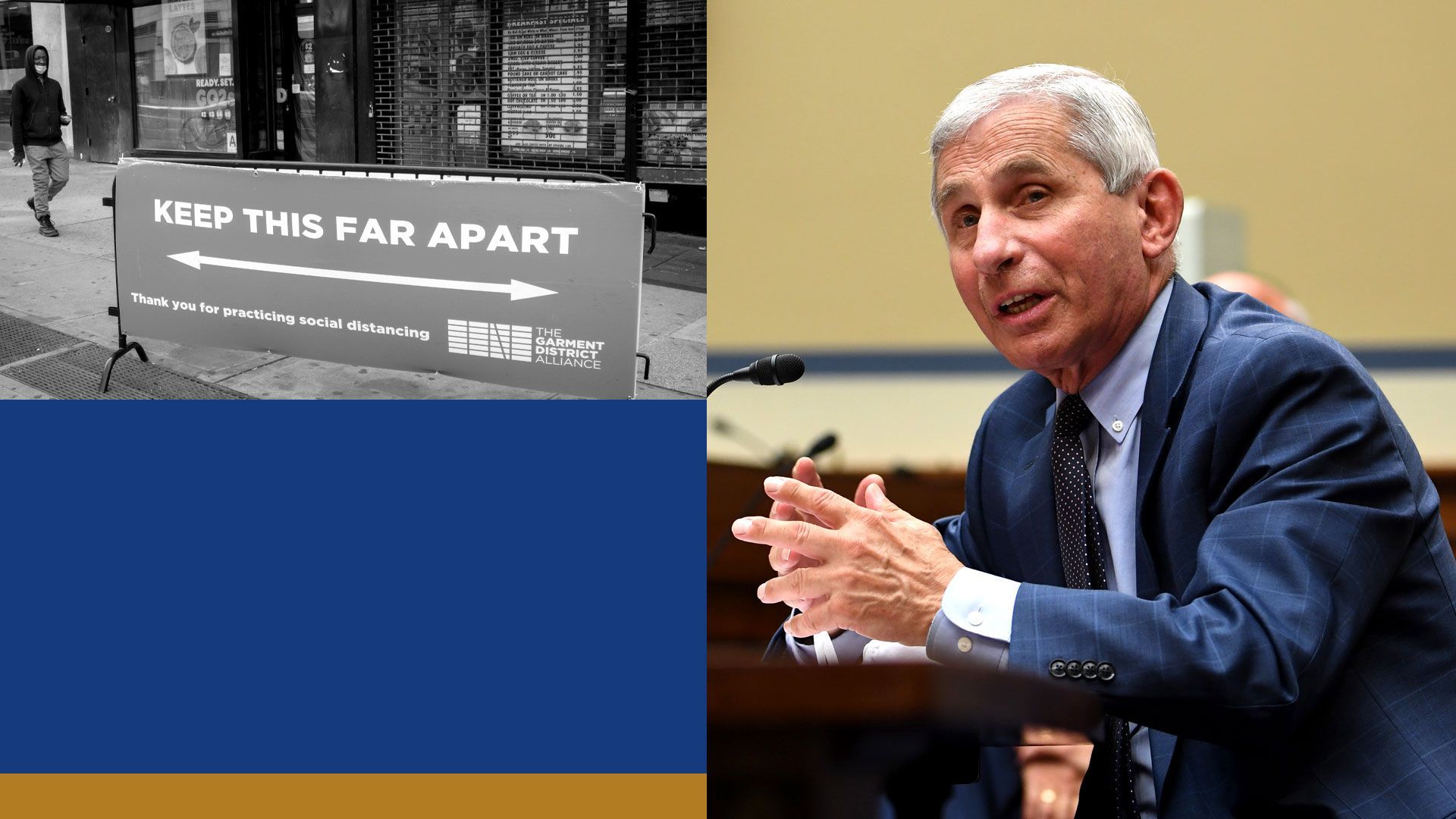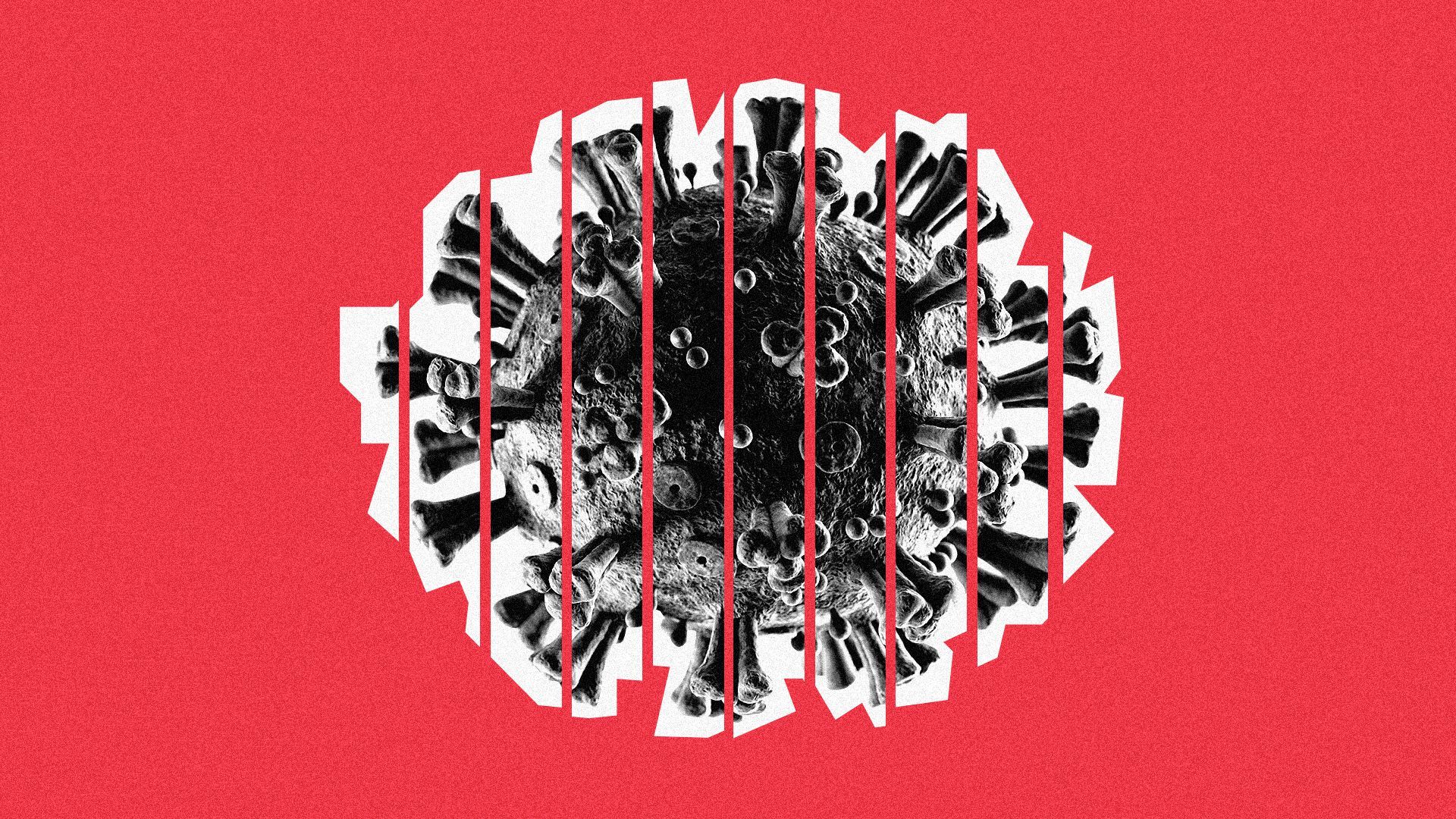| | | | | | | Presented By Coalition for Affordable Prescription Drugs | | | | Vitals | | By Caitlin Owens ·Jan 07, 2021 | | Good morning. Yesterday was horrifying, and I spent way too much time watching television and Twitter, as I'm sure most of you did as well. Today's word count is 924, or a 3-minute read. | | | | | | 1 big thing: Serious coronavirus infections continue to mount |  Deaths and severe illness from the coronavirus continue to set new records almost every day, especially in the South and the West, Axios' Sam Baker and Andrew Witherspoon report. The big picture: More than 130,000 Americans are in the hospital today with COVID-19 infections. That's straining several states' health care systems and will keep pushing the virus' death toll higher and higher. By the numbers: In 34 states, coronavirus patients are occupying at least 10% of all hospital beds. - Arizona, California and Nevada are in exceptionally bad shape — over 30% of all the hospital beds in each state are filled with coronavirus patients.
- 11 states are seeing more hospitalizations now than at any other point in the pandemic.
Why it matters: Hospitalizations are an indicator of severe infection. Mildly sick patients generally aren't hospitalized, especially in states that don't have the capacity to handle many more patients at all. - And people who are sick enough to warrant a hospital stay are the patients most at risk of dying from the virus.
- The virus has already killed roughly 350,000 people in the U.S., and is killing about 3,000 people per day.
The bottom line: The U.S. just seems to have accepted that 3,000 people are going to keep dying every day, at least until we can all get vaccinated — assuming we're all willing to get vaccinated. |     | | | | | | 2. The growth of "pharmacy deserts" |  | | | Illustration: Aïda Amer/Axios | | | | Neighborhoods in cities like Chicago are rapidly becoming places where people can't fill medical prescriptions locally because their drugstores have shuttered or don't accept Medicaid, Axios' Jennifer Kingson reports. Why it matters: The pandemic has accelerated the growth of "pharmacy deserts" as unprofitable and less-profitable stores have closed. It's a worrisome trend for the urban poor, who are less likely to try online pharmacies and more likely to let their drug regimens lapse when they can't get medication locally. Driving the news: Effective Dec. 1, Medicaid patients in Illinois — of which there are 400,000, per the Chicago Tribune — could no longer get their prescriptions filled at Walgreens, a prevalent chain in the city. - The change came because Aetna, which provides contracts with the state of Illinois to serve Medicaid recipients, dropped Walgreens as a provider. CVS — a top Walgreens rival — owns Aetna as well as the pharmacy benefits manager CVS Caremark.
- CVS "has no pharmacies in five key West Side neighborhoods," per the Tribune.
The backstory: Researcher Dima Qato coined the term "pharmacy desert" in a 2014 article that found there were far fewer pharmacies in Chicago's Black neighborhoods than in white and mixed neighborhoods. - Medicaid policies like the one in Illinois "are all over the country, where Medicaid dictates where and where you can go fill your medication," Qato tells Axios.
Of note: Studies draw a direct line between pharmacy closures and people stopping their vital medications — with terrible health outcomes. Go deeper. |     | | | | | | 3. Fauci sees greater China role in COVID-19 spread |  | | | Photo illustration: Eniola Odetunde/Axios. Photos: Ira L. Black (Corbis), Pool/Getty Images | | | | A lack of transparency by Chinese officials — particularly about the novel coronavirus' transmission and the obstruction of a top U.S. scientist from investigating it — played a significant role in allowing COVID-19 to spread outside China, NIAID director Anthony Fauci tells Axios' Eileen Drage O'Reilly. The big picture: Axios first spoke with Fauci one year ago this week about the "mysterious pneumonia" in Wuhan, China, which he suspected was a novel coronavirus but was being reported by Chinese health officials as not that infectious. - At the beginning, many people outside China "got fooled," he says, because they didn't know the virus causing the pandemic was acting differently from its cousin, SARS-CoV, where people infected with SARS show symptoms.
- If China had revealed its asymptomatic spread earlier, it would have "changed everything" for guidance around masks, social distancing and contact tracing, he says.
Looking back over the prior year, Fauci and other public health experts say there are some lessons learned: - Communication is key.
- Misinformation and disinformation is hugely damaging.
- "Political divisiveness is a big hindrance to an adequate public health response," per Fauci.
- "You get people who are making decisions about their own behavior based on political considerations, as opposed to an objective evaluation of the public health threat," he adds.
The other side: Fauci said that science advances in vaccine technology are the biggest bright spot this year. Go deeper. |     | | | | | | A message from Coalition for Affordable Prescription Drugs | | Premiums for seniors will skyrocket under Rebate Rule | | |  | | | | The Coalition for Affordable Prescription Drugs, alongside other concerned organizations, urges the incoming Biden Administration and Congress to protect seniors from higher premiums by overturning this rule and enacting reforms that lower Rx prices. Learn more. | | | | | | 4. Other countries shake up vaccine distribution | | Some countries are opting to delay the second dose of coronavirus vaccines so that more doses are available for people to get a single shot, the Wall Street Journal reports. Between the lines: Some American experts are also pushing the idea, but the Food and Drug Administration said earlier this week that changing the way vaccines are administered could potentially be harmful to public health. - Countries around the world, like the U.S., are struggling with their initial vaccine rollouts.
Driving the news: The U.K., which faces soaring caseloads due to a more contagious variant of the virus, was the first to say that it will delay second shots. - They'll be administered up to three months after the first shots, instead of three or four weeks later, the time frames tested in clinical trials.
- Denmark approved a delay of up to six weeks between doses earlier this week, and Belgium is using all of its available vaccine for first doses while hoping to administer the second round in three to six weeks. Germany is also considering a longer delay between doses.
The other side: "One concern scientists have is that delaying doses could help a mutating virus build resistance, or foster more mutations in people already vulnerable to disease," WSJ writes. What we're watching: The National Institutes of Health said this week that it's studying whether administering half-doses of the Moderna vaccine could give more people protection from the virus faster. |     | | | | | | 5. Catch up quick |  | | | Illustration: Aïda Amer/Axios | | | | 21 people experienced anaphylaxis after getting the Pfizer COVID-19 vaccine, according to a CDC report. Health officials stress this reaction is "very rare" and the the vaccine remains safe overall, Axios' Marisa Fernandez writes. Senate Minority Leader Chuck Schumer (D-N.Y.) said Wednesday that one of his first priorities in the 117th Senate will be to pass legislation that would send $2,000 stimulus payments. The European Medicines Agency on Wednesday recommended Moderna's coronavirus vaccine for authorization in the EU's 27 member states. |     | | | | | | A message from Coalition for Affordable Prescription Drugs | | Rebate Rule is the wrong prescription for lower drug prices | | |  | | | | The Trump Administration's prescription drug "Rebate Rule" will raise seniors' premiums by up to 25%, skyrocket government spending, and will not deliver the lower drug costs that patients need. Learn more about why it should be overturned. | | | | | | Axios thanks our partners for supporting our newsletters.
Sponsorship has no influence on editorial content. Axios, 3100 Clarendon Blvd, Suite 1300, Arlington VA 22201 | | | You received this email because you signed up for newsletters from Axios.
Change your preferences or unsubscribe here. | | | Was this email forwarded to you?
Sign up now to get Axios in your inbox. | | | | Follow Axios on social media:    | | | | | |








No comments:
Post a Comment